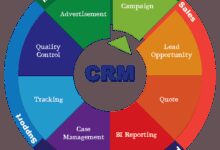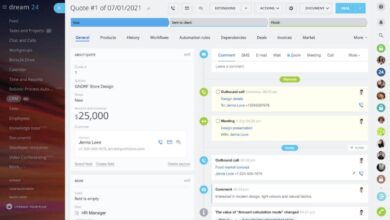Cloud-based CRM platforms with mobile access: Top 7 Cloud-Based CRM Platforms with Mobile Access for 2024
In today’s fast-paced business world, staying connected to your customers anytime, anywhere is no longer a luxury—it’s a necessity. That’s where cloud-based CRM platforms with mobile access come in, empowering teams to manage relationships, track sales, and deliver top-tier service from any device, anywhere in the world.
What Are Cloud-Based CRM Platforms with Mobile Access?

Cloud-based CRM platforms with mobile access are customer relationship management systems hosted on remote servers and accessible via the internet, allowing users to engage with customer data through desktop and mobile devices. These platforms eliminate the need for on-premise installations, offering scalability, real-time updates, and seamless integration across devices.
How Cloud CRM Differs from Traditional CRM
Traditional CRM systems were typically installed locally on company servers, requiring significant IT infrastructure and maintenance. In contrast, cloud-based CRM platforms with mobile access are hosted by third-party providers and delivered via subscription models. This shift reduces upfront costs and increases accessibility.
- Traditional CRM requires physical servers and in-house IT teams.
- Cloud CRM is hosted remotely and accessible via web browsers or apps.
- Updates and security patches are managed automatically by the provider.
Core Features of Mobile-Enabled Cloud CRM
Modern cloud-based CRM platforms with mobile access offer a suite of features designed to keep sales, marketing, and service teams productive on the go. These include real-time data syncing, offline access, push notifications, and GPS-enabled field service tracking.
- Real-time customer data synchronization across devices.
- Offline mode for data entry when internet is unavailable.
- Push alerts for follow-ups, task reminders, and new leads.
“The ability to access CRM data from a smartphone has transformed how sales teams operate—no more waiting until they return to the office to update records.” — Gartner Research, 2023
Top 7 Cloud-Based CRM Platforms with Mobile Access
With dozens of options on the market, choosing the right cloud-based CRM platform with robust mobile functionality can be overwhelming. Below is a curated list of the top seven platforms that combine powerful cloud infrastructure with seamless mobile experiences.
1. Salesforce Sales Cloud
Salesforce remains the industry leader in cloud-based CRM platforms with mobile access. Its mobile app, available on iOS and Android, offers full functionality including lead management, opportunity tracking, calendar integration, and AI-powered insights via Einstein Analytics.
- Intuitive mobile interface with customizable dashboards.
- Offline data capture and automatic syncing when reconnected.
- Deep integration with third-party tools like Slack, Mailchimp, and Zoom.
According to Salesforce’s official site, over 150,000 companies use its CRM solutions globally, many relying on mobile access for field sales teams.
2. HubSpot CRM
HubSpot CRM is a favorite among small to mid-sized businesses due to its user-friendly design and free tier. Its mobile app enables users to log calls, track emails, manage deals, and access contact timelines directly from their smartphones.
- Free plan includes full mobile CRM access.
- Voice calling and meeting scheduling built into the app.
- Seamless sync with Gmail, Outlook, and calendar apps.
HubSpot’s mobile app has been downloaded over 5 million times on the Google Play Store alone, highlighting its widespread adoption. Learn more at HubSpot.com.
3. Zoho CRM
Zoho CRM offers a comprehensive suite of tools with strong mobile capabilities. The Zoho CRM mobile app supports voice commands, AI-driven sales predictions, and territory management, making it ideal for field service and remote sales teams.
- VisionIQ allows image-based data entry using phone cameras.
- Zia AI assistant provides next-best-action suggestions.
- Multi-channel communication (email, phone, social) in one place.
Zoho serves over 80 million users worldwide, with mobile access being a key driver of productivity. Visit Zoho CRM’s official page for more details.
cloud-based CRM platforms with mobile access – Cloud-based CRM platforms with mobile access menjadi aspek penting yang dibahas di sini.
4. Microsoft Dynamics 365 Sales
For enterprises already embedded in the Microsoft ecosystem, Dynamics 365 Sales offers deep integration with Outlook, Teams, and Power BI. Its mobile app delivers real-time insights, AI forecasting, and workflow automation tailored for complex sales cycles.
- Tight integration with Microsoft 365 apps.
- AI-powered sales insights and sentiment analysis.
- Customizable mobile forms and business process flows.
Dynamics 365 is used by over 40,000 organizations globally, many leveraging its mobile CRM for hybrid work models. Explore more at Microsoft Dynamics 365.
5. Pipedrive
Pipedrive is built for sales-focused teams who want a visual, pipeline-driven approach. Its mobile app emphasizes simplicity, allowing users to drag-and-drop deals through stages, log activities, and set reminders—all from their phones.
- Visual sales pipeline optimized for touchscreens.
- Mobile-first design with minimal learning curve.
- Integration with over 700 tools via Zapier and native connectors.
Pipedrive reports that 78% of its active users access the CRM via mobile at least once a week. More info at Pipedrive.com.
6. Freshsales (by Freshworks)
Freshsales stands out for its AI-powered lead scoring and built-in phone system. The mobile app allows users to make calls, send emails, and update deal stages without switching apps, enhancing productivity for on-the-go sales reps.
- Built-in phone and email within the mobile app.
- Real-time notifications for website visits and email opens.
- AI-based deal insights and sentiment detection.
Freshsales claims a 40% increase in sales productivity for mobile users. Learn more at Freshworks CRM.
7. Insightly
Insightly is ideal for project-driven businesses that need CRM and project management in one. Its mobile app supports task tracking, relationship linking, and pipeline management, making it a solid choice for consultants and service-based teams.
- Project and CRM data unified in a single mobile interface.
- Custom workflows and automation rules accessible on mobile.
- Supports file attachments and document signing via mobile.
Insightly serves over 20,000 customers globally, with mobile access being a core feature. Visit Insightly.com for a free trial.
Key Benefits of Cloud-Based CRM Platforms with Mobile Access
Adopting cloud-based CRM platforms with mobile access isn’t just about convenience—it’s a strategic move that enhances efficiency, collaboration, and customer satisfaction. Let’s explore the most impactful benefits.
Increased Sales Team Productivity
Sales representatives spend a significant portion of their time outside the office. Mobile CRM allows them to update records, log calls, and access customer histories in real time, eliminating delays and reducing data entry errors.
- Immediate data entry after client meetings.
- Access to pricing, inventory, and contract templates on-site.
- Reduced reliance on manual note-taking and follow-up emails.
Real-Time Customer Insights
Mobile access to cloud-based CRM platforms with mobile access ensures that every team member sees the latest customer interactions, purchase history, and support tickets. This leads to more informed conversations and personalized service.
cloud-based CRM platforms with mobile access – Cloud-based CRM platforms with mobile access menjadi aspek penting yang dibahas di sini.
- View recent communications before entering a client meeting.
- Receive alerts when a high-value customer visits your website.
- Track customer sentiment across emails and calls.
Improved Collaboration Across Teams
Marketing, sales, and customer service teams can stay aligned when they share a unified CRM accessible from any device. Mobile CRM breaks down silos by enabling instant updates and cross-departmental visibility.
- Service agents can see sales history before resolving issues.
- Marketing can track lead engagement from mobile campaigns.
- Managers can approve contracts or discounts remotely.
“Companies using mobile CRM report a 25% faster response time to customer inquiries.” — Salesforce State of Service Report, 2023
Critical Features to Look for in Mobile CRM Solutions
Not all cloud-based CRM platforms with mobile access are created equal. To maximize ROI, businesses should evaluate platforms based on specific mobile-centric features that support real-world usage.
Offline Access and Syncing
Field sales reps often work in areas with poor connectivity. A reliable mobile CRM must allow offline data entry and automatic syncing once the device reconnects to the internet.
- Data entered offline should sync without duplicates or errors.
- Attachments and notes should also be supported offline.
- Conflict resolution mechanisms for simultaneous edits.
Push Notifications and Task Alerts
Timely reminders are crucial for maintaining momentum in sales and service. Push notifications for upcoming meetings, overdue tasks, or new leads help users stay on top of their responsibilities.
- Customizable alert preferences (sound, vibration, banner).
- Priority-based notifications for high-value accounts.
- Integration with calendar and email alerts.
Mobile Security and Data Protection
With sensitive customer data on mobile devices, security is paramount. Look for platforms that offer biometric login, data encryption, remote wipe, and compliance with GDPR or CCPA.
- Biometric authentication (fingerprint, face ID).
- End-to-end encryption for data in transit and at rest.
- Remote logout or device wipe capabilities for lost phones.
How to Choose the Right Cloud-Based CRM Platform with Mobile Access
Selecting the best cloud-based CRM platform with mobile access requires careful evaluation of your business size, industry, budget, and technical needs. Here’s a step-by-step guide to making the right choice.
Assess Your Business Needs
Start by identifying your primary goals: Are you looking to improve sales efficiency, enhance customer service, or streamline marketing campaigns? Different CRMs excel in different areas.
- Sales-heavy teams may prefer Pipedrive or Salesforce.
- Service-focused businesses might benefit from Freshsales or HubSpot.
- Project-based firms may lean toward Insightly.
Evaluate Mobile App Ratings and User Feedback
Check app store reviews (Google Play and Apple App Store) to gauge real user experiences. Look for comments about app stability, loading speed, and feature completeness.
- Average rating above 4.0 is generally reliable.
- Recent updates indicate active development.
- Developer responsiveness to user feedback is a positive sign.
Test Integration Capabilities
Your CRM should integrate seamlessly with existing tools like email, calendars, phone systems, and marketing automation platforms. Poor integration can lead to data silos and inefficiencies.
- Check native integrations with tools like Gmail, Outlook, Slack.
- Verify API access for custom integrations.
- Look for pre-built connectors with your current tech stack.
Implementation Tips for Cloud-Based CRM Platforms with Mobile Access
Even the best CRM will fail without proper implementation. Follow these best practices to ensure smooth adoption and maximum utilization across your team.
Provide Comprehensive Training
Many employees resist new technology due to fear of complexity. Offer hands-on training sessions, video tutorials, and quick-reference guides tailored to mobile usage.
cloud-based CRM platforms with mobile access – Cloud-based CRM platforms with mobile access menjadi aspek penting yang dibahas di sini.
- Host live demo sessions for new users.
- Create short YouTube-style videos for common tasks.
- Assign internal CRM champions to support peers.
Start with a Pilot Program
Roll out the CRM to a small team first to identify issues before company-wide deployment. Gather feedback and make adjustments before scaling.
- Select a cross-functional pilot team (sales, service, marketing).
- Set clear KPIs for success (e.g., data entry speed, response time).
- Use feedback to refine workflows and permissions.
Ensure Data Quality from Day One
Poor data quality undermines CRM effectiveness. Implement data validation rules, deduplication processes, and regular audits to maintain clean, accurate records.
- Use dropdowns and mandatory fields to reduce errors.
- Schedule monthly data cleanup sessions.
- Leverage AI tools to auto-enrich contact data.
Future Trends in Cloud-Based CRM Platforms with Mobile Access
The evolution of cloud-based CRM platforms with mobile access is accelerating, driven by AI, automation, and changing work models. Here are the key trends shaping the future of mobile CRM.
AI-Powered Predictive Analytics on Mobile
Future mobile CRM apps will leverage AI to predict customer behavior, recommend next steps, and automate routine tasks directly from smartphones.
- AI will suggest optimal times to contact leads.
- Predictive lead scoring will update in real time.
- Chatbots will assist reps during client calls via mobile.
Voice-Activated CRM Commands
As voice assistants improve, CRM platforms will support voice-based data entry, search, and task creation, enabling hands-free operation for field workers.
- “Add a follow-up task for John tomorrow at 10 AM.”
- “Show me all open deals in California.”
- “Log a call with Sarah about the Q3 contract.”
Augmented Reality (AR) Integration
AR could allow field service technicians to overlay CRM data onto physical equipment through smart glasses or phone cameras, improving repair accuracy and speed.
- View service history by pointing a phone at a machine.
- Access troubleshooting guides in AR mode.
- Log repairs using voice and visual confirmation.
“By 2026, Gartner predicts that 30% of CRM interactions will occur via voice or AR, up from less than 5% today.”
Common Challenges and How to Overcome Them
Despite their advantages, cloud-based CRM platforms with mobile access come with challenges. Recognizing these early helps organizations mitigate risks and ensure long-term success.
User Adoption Resistance
Employees may resist switching to a new CRM due to habit, fear of change, or perceived complexity. This is one of the top reasons for CRM failure.
- Involve users in the selection process.
- Highlight personal benefits (e.g., less admin work).
- Offer incentives for consistent usage.
Data Security Concerns
Storing customer data in the cloud and accessing it via mobile devices raises security concerns, especially in regulated industries like healthcare and finance.
- Choose CRM providers with SOC 2, ISO 27001, or GDPR compliance.
- Enforce strong password policies and two-factor authentication.
- Regularly audit user access and activity logs.
Integration Complexity
Connecting CRM with legacy systems or niche tools can be technically challenging and time-consuming.
- Use integration platforms like Zapier or Make (formerly Integromat).
- Work with certified CRM consultants for complex setups.
- Prioritize must-have integrations over nice-to-have ones.
What are cloud-based CRM platforms with mobile access?
cloud-based CRM platforms with mobile access – Cloud-based CRM platforms with mobile access menjadi aspek penting yang dibahas di sini.
Cloud-based CRM platforms with mobile access are customer relationship management systems hosted online that allow users to access, manage, and update customer data from smartphones and tablets, ensuring real-time connectivity and productivity on the go.
Which CRM has the best mobile app?
Salesforce and HubSpot are widely regarded as having the most robust and user-friendly mobile apps. Salesforce excels in enterprise functionality, while HubSpot offers simplicity and a powerful free tier.
Can I use CRM offline on my phone?
Yes, many cloud-based CRM platforms with mobile access, such as Salesforce, Zoho CRM, and Microsoft Dynamics 365, offer offline modes that allow data entry without internet, with automatic syncing once connectivity is restored.
Is mobile CRM secure?
Yes, when implemented correctly. Leading CRM platforms use encryption, biometric login, and remote wipe features to protect data. Always choose providers with strong compliance certifications and enforce internal security policies.
How much does a mobile CRM cost?
Prices vary: HubSpot offers a free plan, while Salesforce starts at $25/user/month. Zoho CRM starts at $14/user/month, and Pipedrive at $14.90. Most offer tiered pricing based on features and user count.
Cloud-based CRM platforms with mobile access have revolutionized how businesses manage customer relationships. From boosting sales productivity to enabling real-time collaboration, these tools are essential for modern, agile organizations. By choosing the right platform, focusing on user adoption, and staying ahead of emerging trends like AI and AR, companies can unlock unprecedented levels of efficiency and customer satisfaction. The future of CRM is mobile—and it’s already here.
cloud-based CRM platforms with mobile access – Cloud-based CRM platforms with mobile access menjadi aspek penting yang dibahas di sini.
Further Reading:






